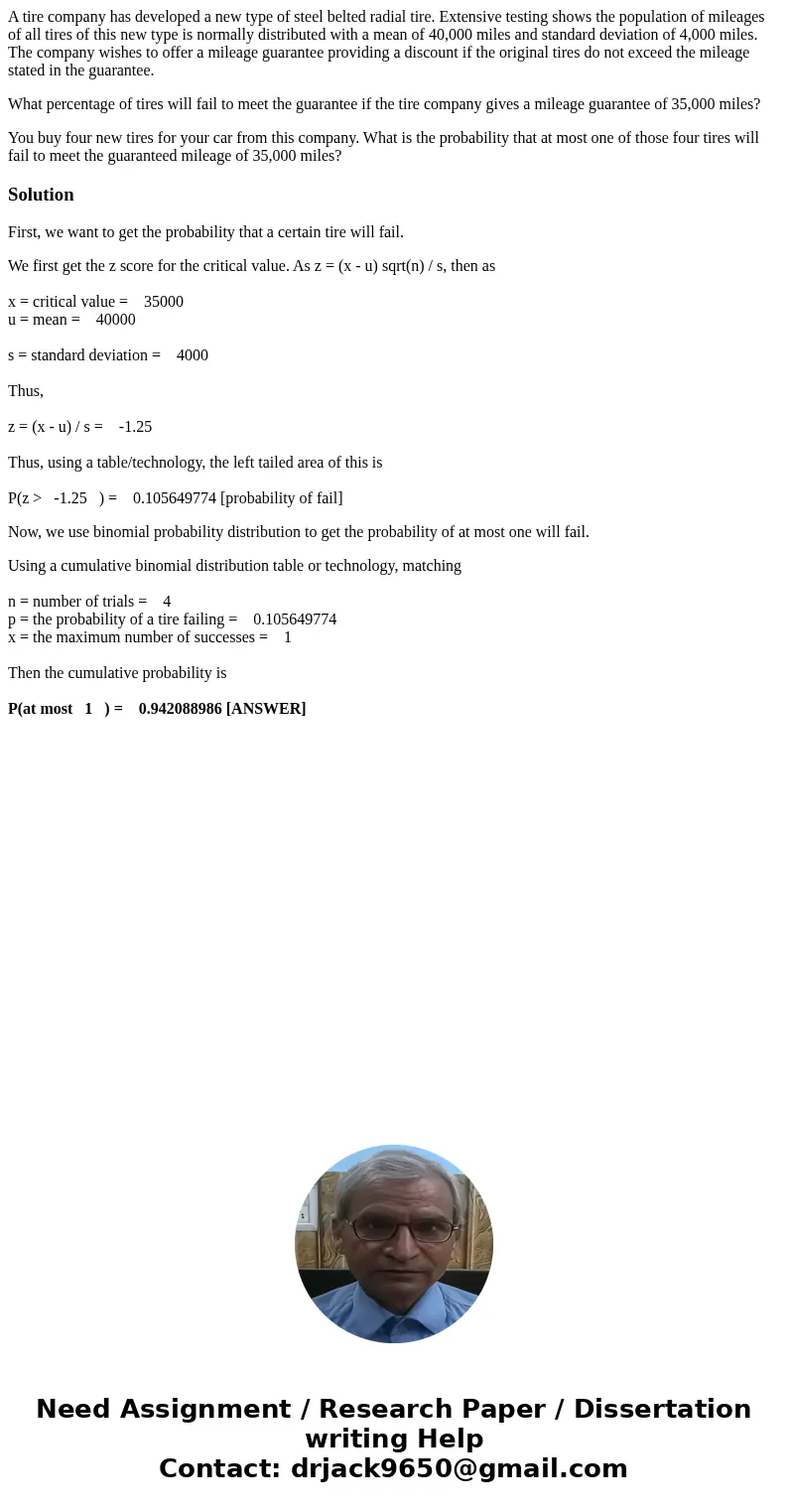A tire company has developed a new type of steel belted radi
A tire company has developed a new type of steel belted radial tire. Extensive testing shows the population of mileages of all tires of this new type is normally distributed with a mean of 40,000 miles and standard deviation of 4,000 miles. The company wishes to offer a mileage guarantee providing a discount if the original tires do not exceed the mileage stated in the guarantee.
What percentage of tires will fail to meet the guarantee if the tire company gives a mileage guarantee of 35,000 miles?
You buy four new tires for your car from this company. What is the probability that at most one of those four tires will fail to meet the guaranteed mileage of 35,000 miles?
Solution
First, we want to get the probability that a certain tire will fail.
We first get the z score for the critical value. As z = (x - u) sqrt(n) / s, then as
x = critical value = 35000
u = mean = 40000
s = standard deviation = 4000
Thus,
z = (x - u) / s = -1.25
Thus, using a table/technology, the left tailed area of this is
P(z > -1.25 ) = 0.105649774 [probability of fail]
Now, we use binomial probability distribution to get the probability of at most one will fail.
Using a cumulative binomial distribution table or technology, matching
n = number of trials = 4
p = the probability of a tire failing = 0.105649774
x = the maximum number of successes = 1
Then the cumulative probability is
P(at most 1 ) = 0.942088986 [ANSWER]

 Homework Sourse
Homework Sourse